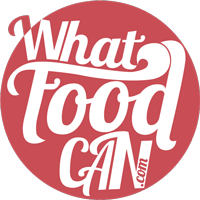SUSTAINABILITY
“Sustaninable development is development thats meets the needs of the present without compromising the ability of future generations to meet their own needs”.1
This celebrated definition came about just 30 years ago, but unfortunately has not turned into something palpable. Why this? Possibly because as humans we have not realised that all components of the earth: nature, all living things, the biosphere, resources etc. form a unit and intermingle. Furthermore, we have not yet really understood that the situation is extremely serious and that the consequences can “touch” us. Many people believe that there isn’t a real need for action.
“For development to be sustainable it must integrate social, ecological and economic factors, and in addition contain both the base of living and non-living resources. It also requires the integration of the advantages and disadvantages in the short and long term.” 2
Where should sustainable development head for? Towards a global balance, in which all beings have access to food, education, work and a decent and safe place to live. And towards an earth which can “sustain” us all.
The motto of the “Club of Rome” says: think globally, act locally! You can start on your next purchase and practice sustainability every day at home. You are needed in this process! Participate!
Sustainability around food:
Buy only what you can eat. So we avoid throwing food away.
Cook yourself, and avoid buying readymade meals.
Buy local and seasonal products to support local producers and farmers who grow their vegetables without pesticides. So that long travelled transportation, packaging, fuel, refrigeration, working hours, expenses and finally, the sale of unripe and tasteless fruits and vegetables are avoided.
Intensely colourful and flawless vegetables are not necessarily the best. We must promote variety in order to avoid monocultures, which ruin biodiversity and are the absolute destroyers of sustainability. Reducing the diversity of species is a genetic loss that cannot be recovered in millions of years.
Broccoli (and other vegetables) can be eaten whole. Cut the stem into pieces. It is edible and delicious.
Vegetables can be kept by fermentation, just as our grandparents did. They enrich our table in winter, and can always be given as a cool gift.
A meat dish is needless every day. Let’s go back to the Sunday roast! Eating less meat preserves the environment, our purse, and is definitely healthier. Instead, we must focus on incorporating more fruits and vegetables. For 1 kg of beef consumption some 15,000 litres of water are needed. If you already buy meat, buy it at a butcher shop where you know that they care about the fact that the animals have a decent life in a natural environment.
With leftovers of meals you can cook delicious dishes, instead of throwing them away. Throw a “leftovers of the week” party on a Friday for your friends! Everyone brings their leftovers from the week and what is still to cook. It’s very pleasing to invent new dishes, tortillas, pizzas etc .. always consume what has been purchased!
Keep our “ecological mark” small. This mark refers to the preservation of productive areas of terrestrial and aquatic ecosystems that are needed to produce the resources we consume and to neutralize the waste we generate. The “Earth Overshoot Day” (Day of the Earth’s excess), is held every year a little earlier. In 2013 it was held on August 21, in 2003 on September 22, in 1993 on October 21. During these days natural resources were depleted.
Save water! Even in such simple things like brushing your teeth. If you have a garden or a balcony with plants water them with rainwater, those who can! We have increasingly less water.
Do not buy products containing genetically manipulated raw materials.
Naturally we must reject all synthetic packaging in all that relates to foodstuffs. This is not easy. It’s best to give up plastic in general. Take a look at the article on “Plastic” on the main page.
Whoever has a garden should turn their biological remains into compost to fertilize their plants. Thus the cycle of nature comes full circle. What we received from it we give back.
Feel gratitude for all we possess in such abundance
Much of humanity has no resources to protect it. It has absolutely NOTHING. Not even the most basic foods.
To effectively integrate sustainability into everyday life is a fundamental thing: Awareness, of the simple fact that between knowing and acting there is a wide range of “nothing.” 4
We can all start today, right under our noses! Sustainable behaviour begins with “stop doing”, let go, renounce, amend.
P.S. I am very happy now living in Berlin, where increasingly sustainable projects have arisen, and I see a lot of people excited about heading in this direction.
1 “Unsere gemeinsame Zukunft. Der Brundtland-Bericht der Weltkommission für Umwelt und Entwicklung.” Herausgeber: Volker Hauff, Greven 1987
2 Grober, Ulrich: “Die Entdeckung der Nachhaltigkeit, Kulturgeschichte eines Begriffs”, S. 257, Antje Kunstmann Verlag, 2013.
3 footprintnetworking.org, Earth Overshoot Day.
4 The Tecnical University of Berlin is investigatingin a 3 year project, leaded by Laura Stanszus. Information: https://www.aloenk.tu-berlin.de/menue/forschung/binka/
Book recommendation:
Eden Tull, Deborah: “The natural kitchen.” process self-reliance series, 2010.
